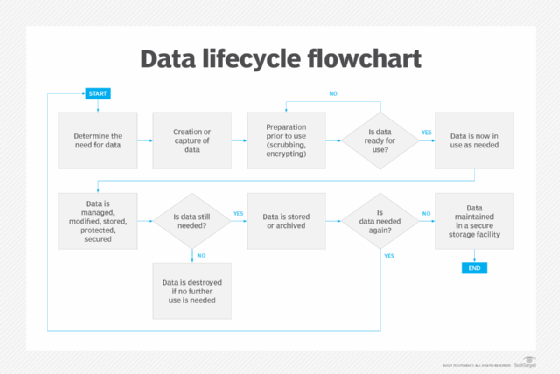The Necessary Nature of Data Damage in Upholding Computer System Safety Solutions and Protecting Versus Unauthorized Gain Access To
In an era where information breaches and identity burglary are progressively common, the importance of reliable data destruction can not be overstated. Organizations has to identify that the failure to appropriately get rid of delicate information postures not only legal and economic dangers however additionally a potential erosion of client trust. Numerous techniques, from information cleaning to physical devastation, work as essential safeguards against unapproved gain access to. Recognizing the effects of data devastation techniques and compliance with policies increases crucial inquiries regarding the adequacy of present methods and their long-lasting stability in the face of developing threats.
Value of Data Damage
In an increasingly electronic globe, the relevance of information destruction can not be overstated. As companies generate large quantities of delicate info, the possible consequences of falling short to effectively manage and dispose of that information come to be progressively severe. Information violations, identification burglary, and company espionage posture considerable risks, highlighting the need of effective data devastation techniques.

Additionally, as modern technology develops, so too do the approaches through which destructive stars look for to exploit delicate information. Organizations should stay attentive and aggressive in their information damage techniques to secure versus these advancing threats. By focusing on information destruction, firms not only shield their properties however additionally foster count on among stakeholders and clients, demonstrating a commitment to liable information monitoring and security practices.
Approaches of Effective Data Devastation
To make certain the full and irreparable destruction of delicate information, organizations can utilize a variety of efficient techniques tailored to their particular needs. One of one of the most usual methods is data wiping, which entails making use of specialized software to overwrite existing data multiple times, making recovery essentially impossible. This is especially valuable for solid-state drives and tough drives, where standard removal methods are insufficient.
An additional efficient approach is degaussing, which utilizes solid magnetic fields to disrupt the magnetic domains on storage media, providing the information irretrievable. This method is specifically matched for magnetic storage space tools, such as tape drives and tough disks.
Physical damage is likewise a viable alternative, involving the shredding, squashing, or incineration of storage gadgets. This method assurances that data can not be recovered, making it optimal for companies dealing with extremely sensitive info.

Conformity With Data Protection Rules
Organizations must not just concentrate on reliable data damage approaches but additionally make certain compliance with information defense policies that govern how sensitive info is handled and dealt with. Complying with these policies is visit this web-site necessary for preserving and protecting individual information customer count on. Regulations such as the General Data Protection Guideline (GDPR) in the European Union and the Medical Insurance Transportability and Accountability Act (HIPAA) in the United States impose strict guidelines on information monitoring, which include needs for the safe and secure disposal of sensitive details.
To accomplish conformity, companies need to execute thorough information devastation policies that line up with these lawful structures. This consists of identifying data that requires damage, establishing protocols for safe and secure methodsâEUR" such as shredding physical media or making use of software application that fulfills industry standards for information wipingâEUR" and maintaining thorough records of destruction activities. Regular audits must be carried out to guarantee adherence to these policies and to determine any prospective locations for renovation.
Failing to abide with information protection laws can result in significant lawful implications, consisting of significant penalties and damage to an organization's credibility. Consequently, integrating compliance into information devastation methods is not only a lawful obligation yet likewise an important component of a durable information security technique.
Repercussions of Poor Data Handling
Poor information handling can bring about extreme effects that prolong beyond instant operational problems. Organizations may deal with considerable monetary losses because of data violations, which typically cause pricey remediation link efforts, lawful fees, and governing penalties. These economic effects can stress sources and impede development, inevitably affecting an organization's bottom line.
Furthermore, bad data handling can seriously damage an organization's online reputation. Companions, consumers, and stakeholders might shed rely on an entity that falls short to secure delicate information, causing lowered consumer commitment and potential loss of service chances. This disintegration of trust can take years to reconstruct, if it can be brought back at all.
Additionally, organizations can face lawful implications emerging from non-compliance with data security regulations. Such offenses might result in penalties and investigations, worsening the economic burden and additional tainting the organization's image.
In the world of cybersecurity, poor information administration practices can develop susceptabilities that make systems more prone to unapproved accessibility and cyberattacks. Eventually, these repercussions highlight the important importance of executing durable information dealing with procedures to secure delicate info and maintain organizational honesty.
Best Practices for Secure Data Disposal


Firstly, information must be identified according to its sensitivity. Sensitive info calls for extra rigorous disposal methods, such as shredding physical files and utilizing advanced software application for digital data cleaning. Using qualified information destruction services ensures compliance with sector policies and standards.
Secondly, companies should implement an information disposal policy that mandates routine audits. This plan should outline the treatments for information retention and devastation, making sure that obsolete data is taken care of without delay and safely. Educating employees on these methods is necessary to cultivating a society of protection awareness.
Finally, keeping thorough records of disposed data improves responsibility and supplies a clear audit route. This documentation ought to consist of the sort of data damaged, the technique utilized, and the date of disposal.
Conclusion
Finally, the necessary of effective data damage appears in its role in improving computer protection services and alleviating unapproved accessibility threats. Taking on robust techniques such as information wiping, degaussing, and physical destruction, alongside compliance with guidelines like GDPR and HIPAA, is crucial for securing delicate details. Overlooking appropriate information disposal methods can cause serious effects, consisting of information breaches and legal effects. Executing ideal methods in safe information disposal eventually strengthens organizational integrity and client depend on.
In an age where information violations and identification theft are significantly prevalent, the significance of efficient information damage can not be overemphasized. data destruction. Data violations, identity theft, and business reconnaissance posture substantial dangers, underscoring the necessity of reliable data damage methods
Conformity with policies such as GDPR and HIPAA requireds that organizations carry out strict information protection measures, consisting of the safe devastation of information at the end of its lifecycle.
By prioritizing data destruction, firms not only safeguard their assets but also foster count on amongst customers and stakeholders, demonstrating a commitment to accountable information monitoring and safety methods.
Organizations should not just concentrate on effective data devastation approaches yet also make certain conformity with information defense laws click this site that regulate just how delicate information is taken care of and disposed of.